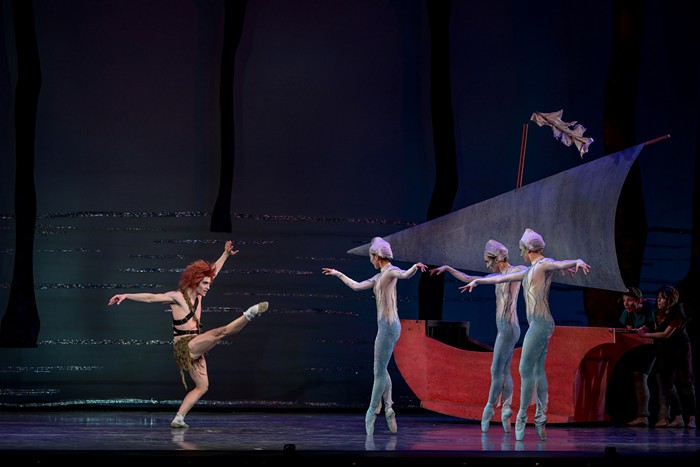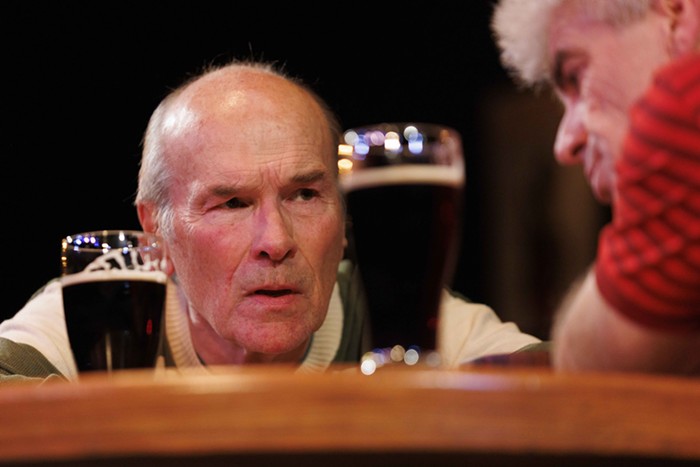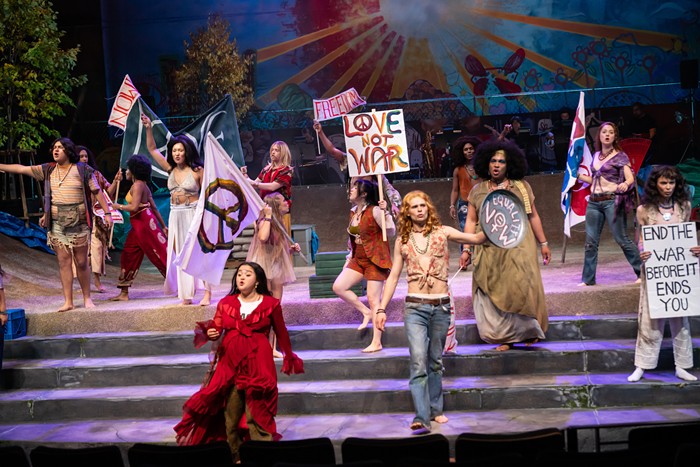The question posed in The Bullet Round is an intermittently hot-button one, its cultural profile rising and falling in relation to school shootings and whether or not the first lady needs a cause du jour: What's the root cause of violence in our society? Is it racism, classism, filial resentment? More specifically, does violence in the media promote real-life violence, or do media depictions of violence—in movies and videogames, in song lyrics—simply serve as a safety valve, an outlet for society's more violent impulses?
Theater is perhaps uniquely poised to consider this question, in that it's a medium that can depict violence without being accused of perpetuating it. No one's going to accuse The Pillowman of contributing to child murders—theatergoing audiences are, presumably, too sophisticated to allow themselves to be shaped by the media they consume (unlike all those car-stealing, whore-killing Grand Theft Auto IV gamers).
The Bullet Round raises its question in the contemporary context of the rap music scene in Boston, circa now, and the script's consideration of violence is both theoretical and literal: The show follows the path of a single gun as it passes from one character to the next (Chekhov is name-checked, on the off chance that anyone doesn't expect the gun to fire by play's end).
Joey (Chris Murray) is "the new Eminem," a white rapper known for his misogynistic and homophobic lyrics. With the help of his brother Kevin (Paul Glazier), Joey's preparing for two upcoming appearances: an interview with radio shock-jock Arthur (Anthony Casanova), and an appearance at a Harvard conference about violence in the media, in which a well-known pop culture scholar will argue that violent song lyrics allow audiences to experience a "catharsis effect," a symbolic purging of violent impulses through music.
As Joey, Murray does some of his best work to date—Murray has a tendency toward hamminess, but underneath the mugging is a talented actor with good instincts (the young actor was recently seen in Third Rail's A Skull in Connemara, and that company just announced his addition as a full-time ensemble member). Nowhere is this more evident than in a scene in which Joey is interviewed by Arthur, directed with precision by Megan Kate Ward. Arthur is a well-dressed, upper-class black man; Joey slouches into the studio in a sweatshirt, hood up, all friendly bluster. What Joey thinks is going to be a fluffy interview quickly turns into a hatchet job, as Arthur derides Joey for his offensive lyrics, his appropriation of black culture, and his broad South Boston accent. Joey's cheerfulness soon begins to fray, and he begs Arthur—on air—to "stick to the script," only to lose it altogether when Arthur suggests he might be gay. Volumes are communicated in the hesitations and outbursts of this interaction, as a subtle power struggle wages between the twin indignities of racism and classism—not to mention Arthur's deliberate, gleeful manipulation of Joey's own homophobia.
Playwright Steven Drukman is better at dialogue and characterization than plot—the script is funny and the characters compelling, but Drukman's requirement that a gun pass between every character in the play leads to some unlikely character decisions, and the show ultimately feels overstructured and contrived. It also dodges its own question, concluding, after 90 minutes of wading through theories of violence and the politics of race and class, that the answer to the question posed in the first paragraph of this article is "none of the above." The answer we're left with is that violence is a response to cruelty—the bullied becomes the bully. For a show as crammed with ideas as The Bullet Round, it's a disappointingly glib conclusion.



















